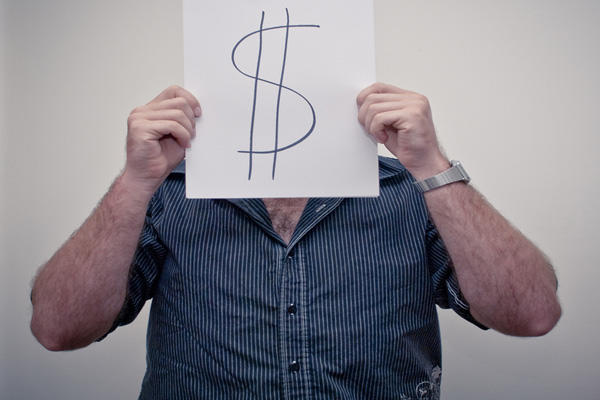Good money management is about more than just being able to afford the essentials. It's about being able to cope with the unexpected and grow your wealth, saving a little more each day.
If you're worried about your money management skills, the tips below might help you figure out what you're doing wrong and how to fix it.
Related: 5 Steps to Stop Living Paycheck to Paycheck
1. You Carry a Balance on Your Credit Card
Everyone should know by now that credit cards are one of the worst forms of debt. Carrying a balance from month to month, and paying interest, is an easy way to throw your money away.
Yet, despite this knowledge, Americans still love to carry a balance. In fact, one in three U.S. adults carries a credit card balance from month to month, and 15 percent of adults roll over $2,500 or more each month, according to the 2014 Consumer Financial Literacy Survey.
One reason people get hooked on credit cards is because they are chasing points for rewards like flights, gift cards and cash back. But if you're paying any sort of interest on those cards, then the numbers often just don't stack up.
The fix: If you do regularly carry a balance, look to consolidate it to a no-frills, low-rate credit card — and then focus on paying it off.
2. You're Constantly Accruing Late Fines and Overdraft Fees
If you are regularly getting hit with late fines and overdraft fees, it's a sure sign you aren't in control of your money. Perhaps you let the bills sit on the kitchen bench, unopened, for weeks at a time. Or you don't check your bank account balance before going on a shopping spree and accidentally overspend, getting hit with a massive overdraft penalty.
These fees and penalties are such a waste of money, because you get no benefit from the payment. And it's costing Americans a lot each year, with 24 percent of adults reporting that they sometimes or often pay bills late.
The fix: Have a system whereby you open and schedule bills and other payments as soon as you receive them. And check your account balance before you head out, so you know how much you can spend.
3. You Aren't Saving for the Future
Sure it's nice to treat yourself with your hard-earned money today, but if you aren't putting away even a little bit of your earnings for the future, then you're going to have a very boring retirement.
With one in three Americans not saving money toward their retirements, this is a money management issue that can have serious long-term consequences.
The good news is you don't need to put away massive amounts of your income now. The power of compounding interest means that even a small amount saved today can equal thousands in the future.
The fix: Start researching the best retirement option for your finances, then direct a portion of your income to that account — even 10 percent will mean a more secure retirement.
4. You Don't Have Emergency Savings
Unfortunately, emergencies happen all the time. If you don't have a bit of cash socked away for those out-of-the-blue events then you'll be left relying on credit — or worse, unable to pay your bills at all.
Having savings set aside also gives you freedom. Can't stand your roommate? You've got the funds to move out and find your own place. Boss giving you grief? An emergency fund will tide you over while you change jobs.
The fix: Set aside 10 percent of your pay into a high-interest, online-only account. You want to make it hard for you to access your money frequently, but relatively easy to get at in a hurry. Then sit back and see what a difference having a backup plan makes to your sense of financial security.
5. You Don't Know Where Your Money Is Going
Does this sound familiar? Your paycheck gets deposited into your bank account, you pay a few bills that are due, visit the ATM for some cash, go to the ATM again and buy that top that's just gone on sale. Then it's two days before payday and there's $3 in your account. Where'd it all go?
Without a good idea of where your money is going, all of your other financial goals are that much harder to meet. If you're constantly short of cash, then you're more likely to use your credit card. And then you're just that much more behind next month.
The fix: Start making it a habit to look at your bank statement every night and consider how each purchase impacted your goals, positively or negatively. By looking at your account each day, you'll start to see patterns in your spending and become more aware of where your money black holes are. And that's the first step to turning your bad money habits around.
This article was contributed by Nell Casey of GOBankingRates.com, a leading portal for personal finance news and features, offering visitors the latest information on everything from strategies on saving money to getting out of debt.




